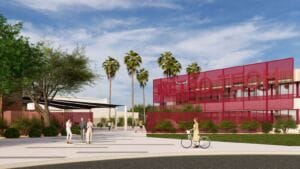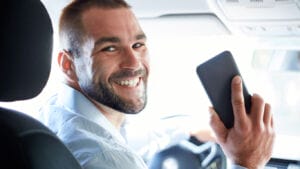HonorHealth, a leading Valley healthcare system serving 1.6 million people in the greater Phoenix area, announced today that its Cardiovascular Center of Excellence has made a monumental achievement in the treatment of a common cardiovascular disease known as PAD, or Peripheral Artery Disease, which affects more than 10 million in the United States.
HonorHealth’s Venkatesh Ramaiah, MD, chief of complex vascular services, became the first doctor in Arizona to perform a percutaneous (skin puncture) bypass procedure on a patient with complete blockage in the femoral artery, just weeks ago, kicking off an intensive clinical trial known as DETOUR II. The study, which is accepting up to 200 patients, could lead to FDA approval for the procedure as early as next year.
“It’s difficult to express how important this study is for Arizona as a whole,” said Dr. Ramaiah, who performed the procedure at HonorHealth Scottsdale Osborn Medical Center. “We have performed peripheral percutaneous bypass surgery on an advanced PAD patient without cutting open or making incisions in the leg. This makes this type of procedure significantly less invasive with potentially fewer risks than the traditional procedure. In the DETOUR II procedure, we are using stent grafts that travel through the femoral vein, bypassing the diseased portion of the femoral artery and essentially creating a bypass for blood to flow freely again to the patient’s lower limb.”
PAD is the result of the buildup of plaque in the arteries, reducing blood flow to the lower limbs and ultimately leading to extreme leg pain, numbness and eventually gangrene, which later results in amputation. In fact, as many as 200,000 people with PAD undergo limb amputations each year, according to the CardioVascular Coalition (1). If left untreated, PAD can be life-threatening.
Until now, PAD patients had to undergo many incisions in the leg and endure long hours on the operating table, leading to slow recovery times and an increased risk of infection and other complications. The new DETOUR II procedure not only potentially removes those risks but also could lead to better quality-of-life outcomes. Patients can potentially leave the hospital within the same day, but due to the nature of the DETOUR II clinical trial, Dr. Ramaiah and his team have opted to keep their patients overnight for observation.
Those interested in participating in the DETOUR II clinical trial can contact HonorHealth Research Institute at 480-323-1046 to learn more. For more information on HonorHealth and the Cardiovascular Center of Excellence, please visit www.HonorHealth.com/heart.




